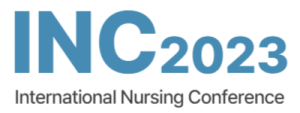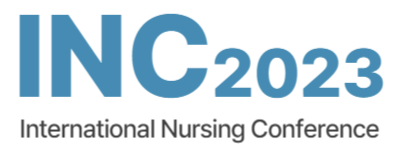Influence of the COVID-19 pandemic on Asian scholarly journal editors & publishers
Sue Kim (KCSE, Yonsei University, Korea)
The COVID-19 pandemic has impacted people world-wide, and journal editors are no exception. This cross-sectional survey was done to examine how the COVID-19 pandemic has affected Asian scientific journal editors and/or publishers in terms of their daily life and work life; and identify opinions for anticipated changes.
After ethical committee approval (#HIRB-2020-037) an online survey was conducted from July 13-19, 2020. The study was advertised and the survey link was distributed via email to editors/publishers via the mailing lists of the Korean Council of Science Editors, Korea Federation of Science and Technology, and CASE members. Consisting of 19 questions (5 minutes), there were 2 Likert items, 13 categorical items, and 4 open-ended questions on the following: General characteristics (4 items), change in daily life (2 items), change in work life (7 items), anticipating future needs (6 items)
During the one week period of study, out of 1,537 invited via email there were 152 respondents (response rate 9.7%). 80.9% were editors or editorial board members and 11.2% were manuscript editors.
Anxiety and work burden: 37.5% of respondents noted they were very/extremely anxious about COVID-19, and 67.1% reported increased time spent on the internet since the pandemic. 52.6% had experienced a change in main work place (working from home) and 34.2% noted the work load of editing, reviewing, and publishing had increased. The greatest increase was reported in the natural sciences (45%) and art, humanities, social sciences discipline (44.4%). While 45.4% did not feel any change in submissions, 28.9% reported an increase (Figure 1), with the greatest increase in submissions reported in the art, humanities, social sciences (44.4%) and the smallest proportion reported in engineering (14.3%).

Figure 1. Reported changes in submission since COVID-19
Journal work burden: Overall, 59.2% did not feel changes in time spent on reviewing/editing since COVID-19, but 33.6% reported increased time burden. 73% did not feel difficulty communicating with editorial members/publishers, despite social distancing measures. Although 45.4% had not received COVID-19-related submissions, 38 out of 69 (55.9%) who had reported giving preference to those manuscripts, for example, fast-track review.
Post-pandemic expectations: 73.7% of respondents believed that online-only journal publishing will expand after COVID-19, mostly because it is an irreversible trend and allows easy access. 57.9% did not think that the need for journal publishing (number of articles or number of journals) will increase after the pandemic, mostly because research activities decreased overall and they did not feel the publication environment had changed. However, the emergence of new topics due to the pandemic was acknowledged. Responses to the open-ended question on post-COVID-19 are presented in table 1.
Table 1. Other changes expected from COVID-19
| Category | Examples |
|---|---|
| No changes (17) | Alread online journal; Quality of manuscripts are not affected |
| Online publishing related (12) | Online publishing/platforms will increase; Need for access (OA) |
| Online meetings (7) | More editorial board meeting will be held online; Need for collaborative meetings among editors; Training/workshops; |
| Decreased submissions(7) |
Possible cuts in research funds; Diffcuities in conducting research; Journal sustainability concerns if COVID-19 continues fot a long time |
| COVID-19 articles (6) | Publishing guideline for COVID-19 for better sharing of information; Higher citations of COVID-19 articles |
| Budget issues (3) | OA and low APC; High priced software/services should be lowered |
| Editing issues (3) | Deadline pressure; Need for more personnel in case of COVID-19 infection Rapid/sound reviewing |
| Preprint (2) | Rapid/sound reviewing |
| Other | Increased competition; Unpredictable |
Focused training: During the period of March to June, 2020, 52.6% had not attended any online training programs for journal editing or publishing, which suggests the need for more online training opportunities. Topics suggested for future training programs are presented in table 2.
Table 2. Suggested topics for future training programs related to editing or publishing
| Category | Examples |
|---|---|
| Editing (15) | How to attract quality manuscrips; Manuscript handling; Quality improvement; Rules for fast-track publishing; AI in publshing |
| Publication ethics (9) | Fast-track publication and ethical issues; Retraction of articles; Best practices of ehics/editorial flow; Plagiarism check training |
| Publication (8) | practical OJS; Plan S; Digital standards for online journals |
| Online training (4) | More detailed online training tool; Regular learning opportunities |
| Peer review (4) | Effective reviewing; getting quick review |
| Indexing (2) | International DB indexing |
| Collaboration (1) | Collaboration with other editors |
In summary, the COVID-19 pandemic was a source of considerable anxiety for more than one-third of Asian editors and publishers, especially as they spent more time on the internet. Some worked harder during the COVID-19 pandemic period than before and their increased workload was associated with an increased number of submissions. As such, a closer examination of editor and publishers’ work and anxiety may be needed as the pandemic drags on.
Traditional topics for training programs were still valid (e.g., publication ethics, more advanced journal management, and editors’ collaboration, etc.). But a sizable proportion of respondents believed that more editorial or publishing work would be done via online in the future. Thus, preparing editors for automated processing and educating them on digital standards appears to be an emerging area of need.

